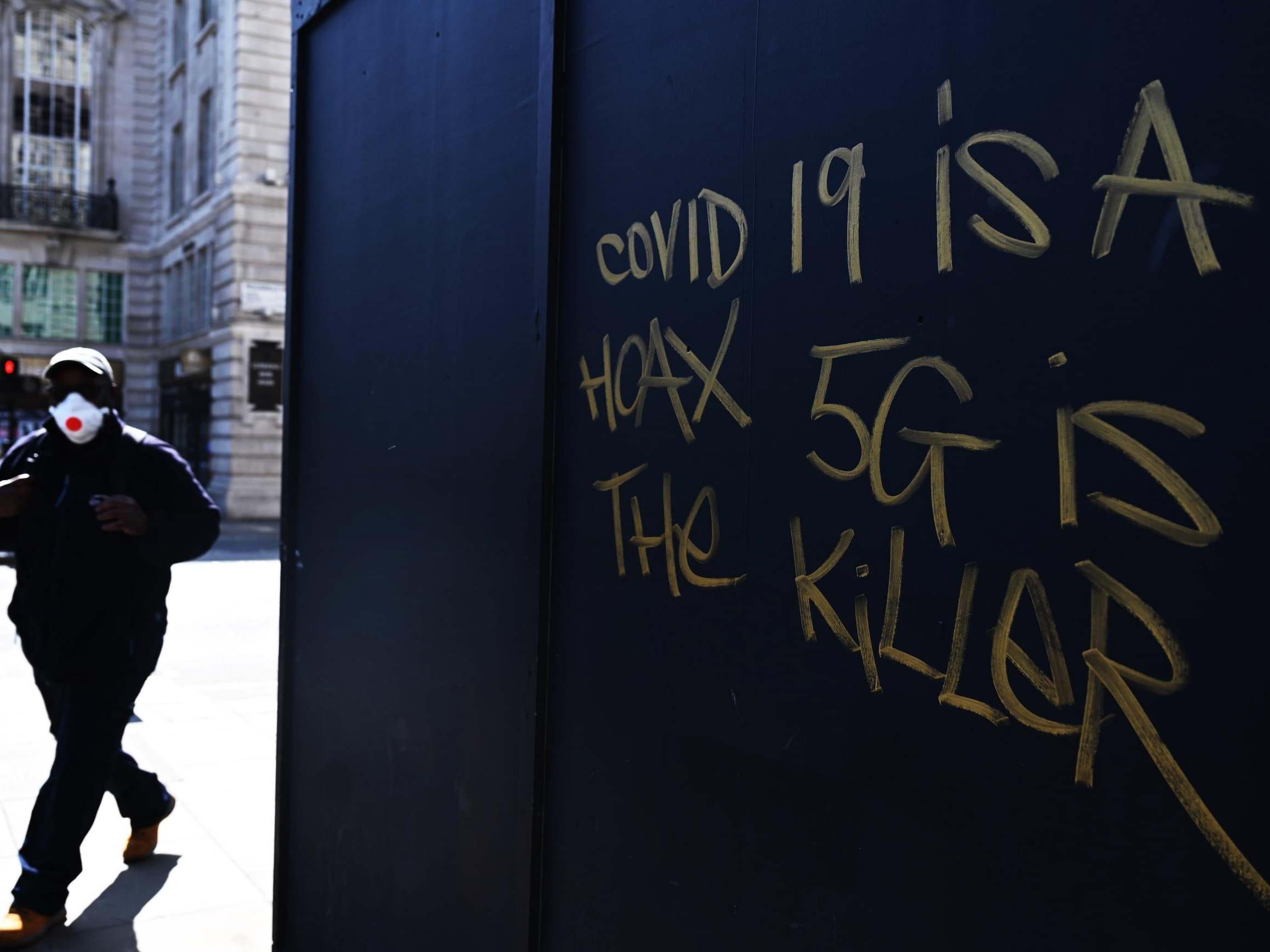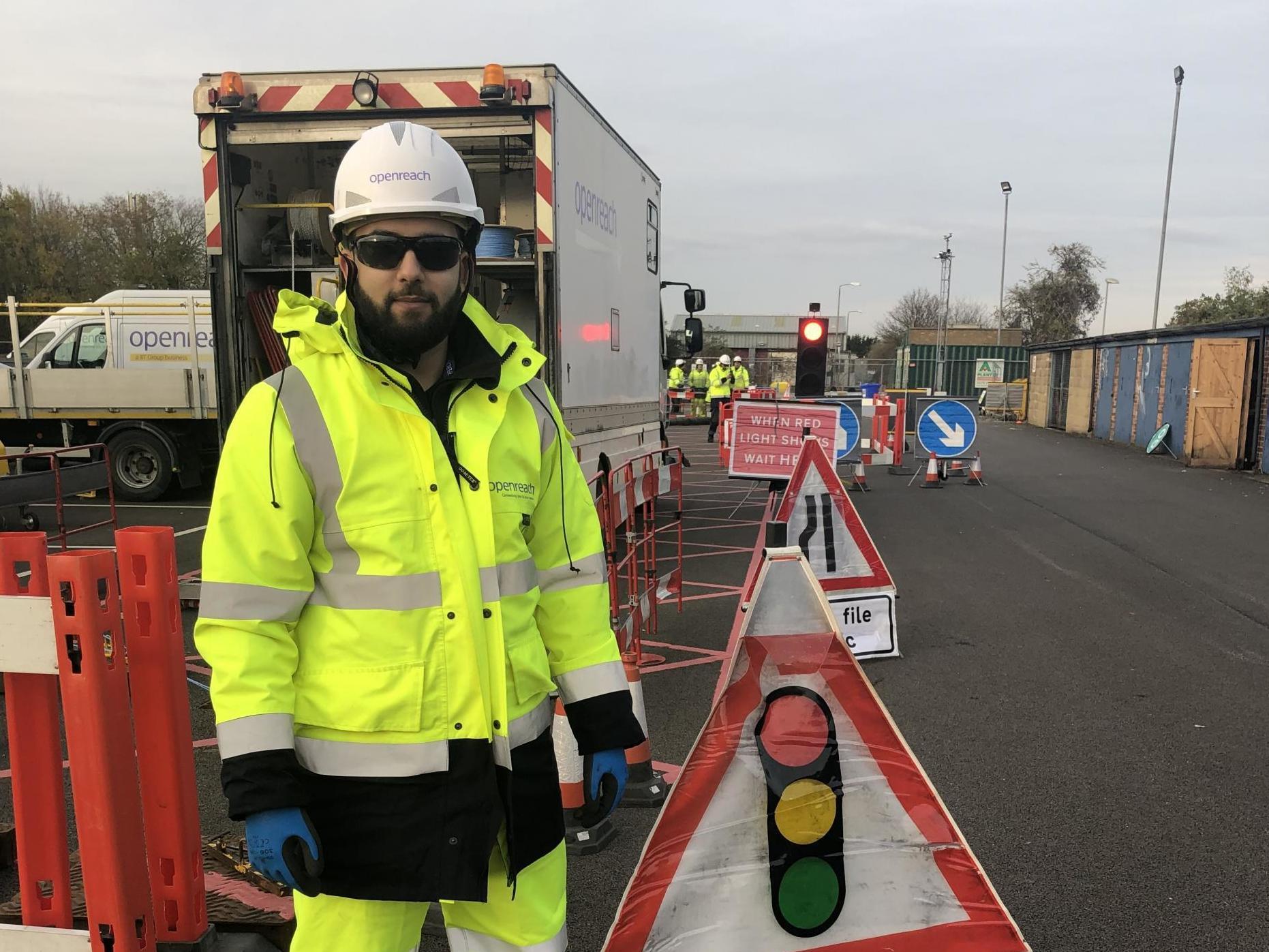Threatened and labelled murderers: How telecoms engineers are facing abuse because of 5G coronavirus conspiracy theory
Claims have spread through internet and – after being amplified by celebrities – now mean broadband workers are being abused on a daily basis, writes Mark Critchley


Your support helps us to tell the story
From reproductive rights to climate change to Big Tech, The Independent is on the ground when the story is developing. Whether it's investigating the financials of Elon Musk's pro-Trump PAC or producing our latest documentary, 'The A Word', which shines a light on the American women fighting for reproductive rights, we know how important it is to parse out the facts from the messaging.
At such a critical moment in US history, we need reporters on the ground. Your donation allows us to keep sending journalists to speak to both sides of the story.
The Independent is trusted by Americans across the entire political spectrum. And unlike many other quality news outlets, we choose not to lock Americans out of our reporting and analysis with paywalls. We believe quality journalism should be available to everyone, paid for by those who can afford it.
Your support makes all the difference.“I was literally just doing my job, making sure the service is up and running, making sure we were connecting everyone,” says Michael Demetroudi, “and this incident just occured out of nowhere.”
Demetroudi is an apprentice network engineer for Openreach, the BT subsidiary which runs the UK’s broadband network. He was working on a roadside cabinet in north London on Tuesday when two members of the public stopped to speak to him. One asked for a cigarette but the other quickly became aggressive and shouted at him, while standing close enough for flecks of spit to land on his face.
“First he complained that every time an engineer comes to this box, something goes missing in his flat as he lived right in front of the cab,” Demetroudi recalls. “Then he goes: ‘All you engineers are just trying to import the 5G in every single box.’”
This was the third time in the space of a week that Demetroudi had been confronted by a member of the public taken in by the conspiracy theories surrounding 5G and the coronavirus.
Together, Openreach and fellow operators EE have recorded around 85 incidents of telecoms engineers being abused, threatened, intimidated or harassed since the start of the coronavirus crisis. The vast majority of these relate to theories circulating on social media channels that 5G is responsible for the coronavirus crisis. Mobile phone masts across the country have also been targeted in arson attacks as conspiracists claim the electromagnetic waves of the network have somehow induced the pandemic.
As these theories are amplified by celebrities such as Eamonn Holmes, Amanda Holden and Amir Khan, companies say workers are reporting new cases of abuse and harassment every day – despite the theories having been called out as false by scientists and governments across the globe.
Before being spat at in the street, Demetroudi had a woman walk out in front of his van, swearing and gesturing at him, and claiming he was spreading 5G from the top of the vehicle.
Then, while queueing to pay for a sandwich in a supermarket, a man noticed the Openreach logo on the back of his hi-vis jacket. “He saw it and it kicked off. Fortunately I was lucky enough that two officers were pulling in to have their lunch as well. They saw the incident occur. I just said: ‘Can I please go and get my sandwich?’”
On this third occasion, Demetroudi once again responded calmly, assuring the man that he was only working with standard broadband rather than anything to do with 5G. “He wasn’t interested in what I had to say and just got more and more aggressive.” As a result of the spit landing on his face, Demetroudi is now having to stay off work and self-isolate at home for two weeks. He lives with a diabetic family member who is at high risk of contracting coronavirus and is therefore taking every precaution that he can.
Another engineer was approached by an agitated member of the public while working near a bus stop in the village of Abercynon in south Wales. He was told he had to shoulder some of the blame for coronavirus deaths because 5G was “killing people”. Others at the bus stop then joined in, accusing him of risking lives.
When a landline engineer in Birmingham was confronted by two male youths over the 5G conspiracy theory, he was forced to assure them he was not working on the installation of the new high-speed network. One of the young men punched his van door and warned him that if he discovered he was working on 5G that “there will be f***ing trouble”.

And in Weston-super-Mare in Somerset, a driver pulled up beside an engineer to ask whether he was working on 5G. When the engineer told him he was not, the driver said: “Good because it’s killing people and if I find out who is, I’m going to beat them up.”
Some engineers have been labelled “murderers”. Others have been accused of breaking social distancing rules by working outside, despite them being considered key workers under the government’s guidelines. Some have even had bricks thrown at them. Thankfully, they missed.
“Recently, it’s like certain members of the public are not even willing to listen to the fact that we are not out here to harm anyone,” says Demetroudi. “We are here just to connect you, so you can speak to your loved ones, be safe and just do what we do. I feel like it’s getting worse and worse.”
He admits to being a little “wary” of doing his job among the public since the abuse and harassment of engineers began. “There’s always a little fear since this whole thing happened in the back of your mind, ‘Is everything going to be safe today?’ That’s not fair for us engineers to have that in the back of our minds.”
Demetroudi is at least pleased with the support and guidance that he has received from his employers, who were already investing and enhancing their “violence at work” training programme for engineers before the worrying surge in incidents which Openreach has ascribed to “the bogus 5G theory”.
Of the abuse and harassment of their workers, an Openreach spokesperson said: “It’s not only deeply concerning but totally misjudged, as our engineers are key workers. They’re playing a vital role in connecting crucial public services, vulnerable customers and millions of friends, families and businesses throughout the UK.”
EE is introducing measures to ensure engineers can continue to do their work safely, increasing security at high risk sites and warning that attacks on key workers and infrastructure could prevent calls from reaching ambulance services. The Communications Workers Union – which represents many of the country’s telecoms engineers – is working closely with the government on how best to protect its members.
But workers are only likely to be truly safe once the spread of misinformation regarding 5G has stopped. Demetroudi believes those with the biggest platforms should be particularly careful about what they share online but also that we all have a responsibility not to spread misinformation.
“Take a moment, think about what you’re posting, think about all the followers you have following you and how it can affect their own personal life as well, or the innocent bystander that they might walk past,” he says. “There’s no need to believe everything that is spread through the internet. There’s no need for it.”
Subscribe to Independent Premium to bookmark this article
Want to bookmark your favourite articles and stories to read or reference later? Start your Independent Premium subscription today.
Join our commenting forum
Join thought-provoking conversations, follow other Independent readers and see their replies
Comments